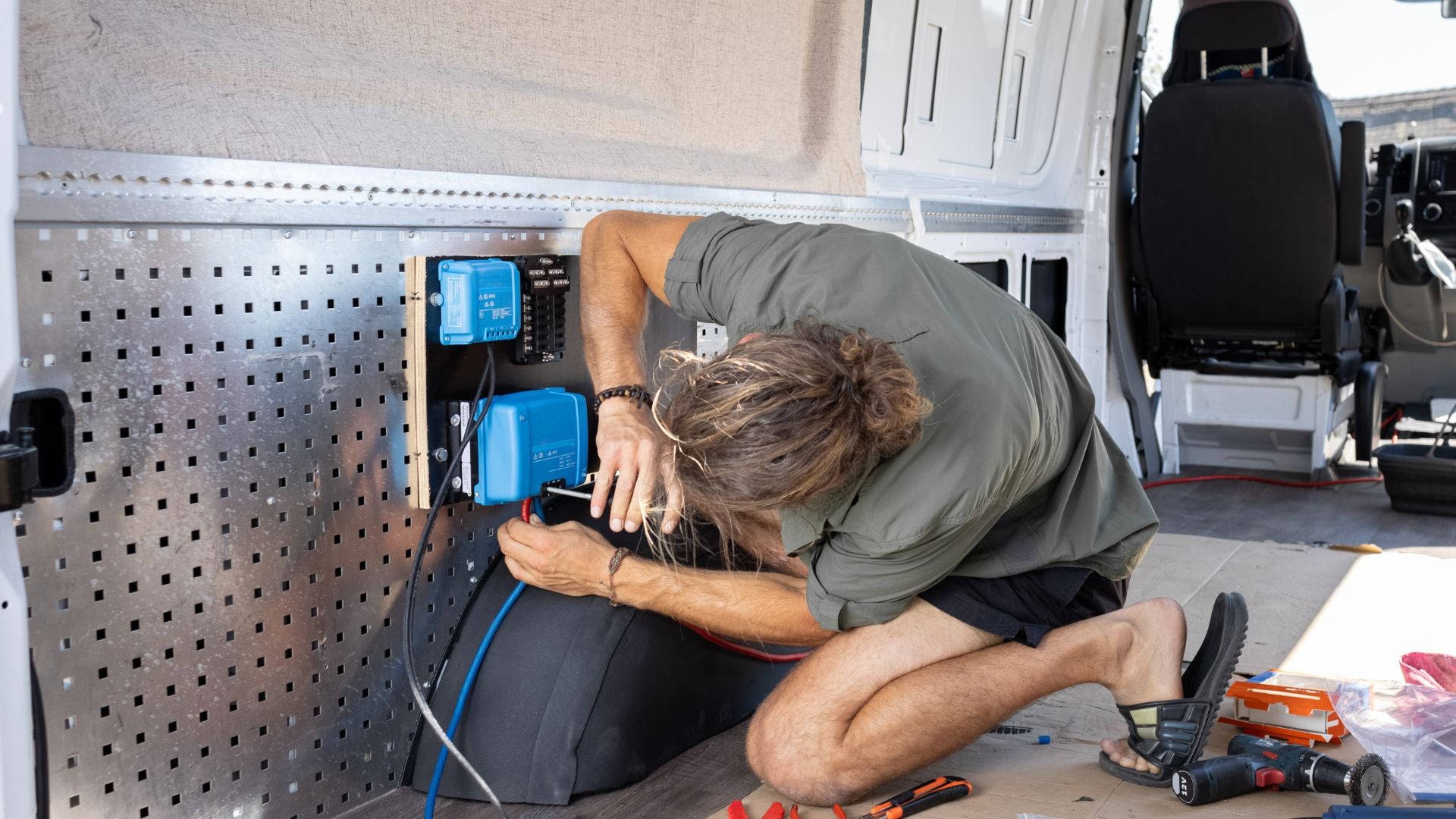Camper van life is different than traditional camping. Instead of using a cooler, sleeping bag, and flashlight, you’ll have a refrigerator, mattress, and overhead lights. The main difference is electricity. Camper vans are similar to homes in this regard. You have a constant source of electricity at your disposal. Still, it’s not as easy as just plugging in your electronic device. Camper van electrical systems have certain limitations and requirements to ensure the proper voltage for your appliances. Read this brief guide to camper van electrical systems to learn more.
Charging
You’ll need a reliable charging station to acquire sufficient electricity for your camper van. Most residences rely on coal or natural gas to power their homes, but camper vans can utilize solar power instead. It’s sustainable, renewable, and free! However, you’ll need the right solar power system, cables, and a charge controller in place to capture and convert UV rays into usable electricity. Solar panels capture sunlight to convert it into electricity. Electric currents travel through the solar cables to the charge controller. This system then regulates incoming voltage to prevent a power surge. It also helps to have an extra battery to store excess electricity for later use.
Voltage
Once you have a solar system in place, you’ll need to keep in mind the voltage of your appliances. Camper vans have common loads in place, meaning appliances that use the most electricity, such as heating and cooling units, refrigerators, fans, and electrical outlets. The camper van itself typically uses 12V DC, which you can hook up to your battery. Other appliances may require AC voltage which involves an electrical inverter. Remember, batteries offer a limited electrical supply. However, the right solar power system can ensure your camper van receives constant energy, as long as you have enough leisure batteries to store it.
Wiring
Finally, wiring is another important step in this guide to camper van electrical systems. Installing the appropriate wires can prevent electrical surges, power outages, and fires. Make sure to choose electrical wires with the proper ampacity to supply a continuous electrical flow without overheating. Fortunately, an overcurrent electrical device, such as a fuse or breaker, prevents this. A good rule of thumb is that your overcurrent electrical device should be smaller than your wire ampacity.
Additionally, voltage drops are natural. Wires with larger diameters have less of a voltage drop than smaller ones. At minimum, you should see a three percent voltage drop if using the correct wires for all critical and non-critical loads.
We understand camper van electricity may seem difficult to understand. Unaka Gear is here to help! As a Victron distributor, we ensure you have the right electrical equipment and energy storage for your camper van. We have it all—whether you’re looking for inverters, chargers, converters, or battery monitors. Contact us today with any questions, and we’ll help you find the right electrical equipment to help light up your van life.



Share:
How To Install a Solar Panel Onto Your Camper Van